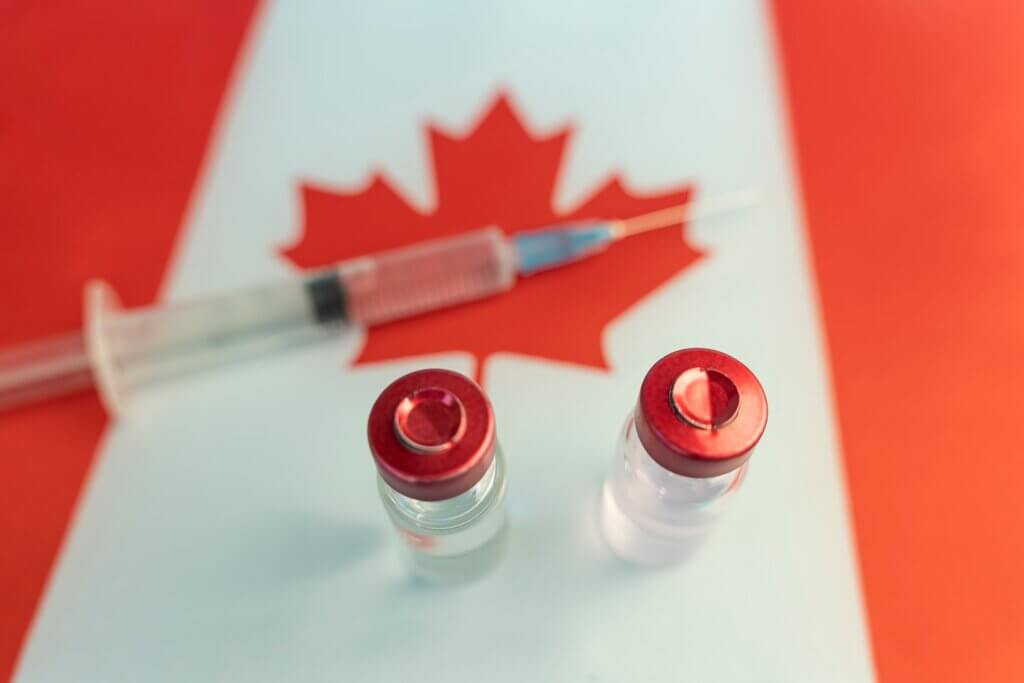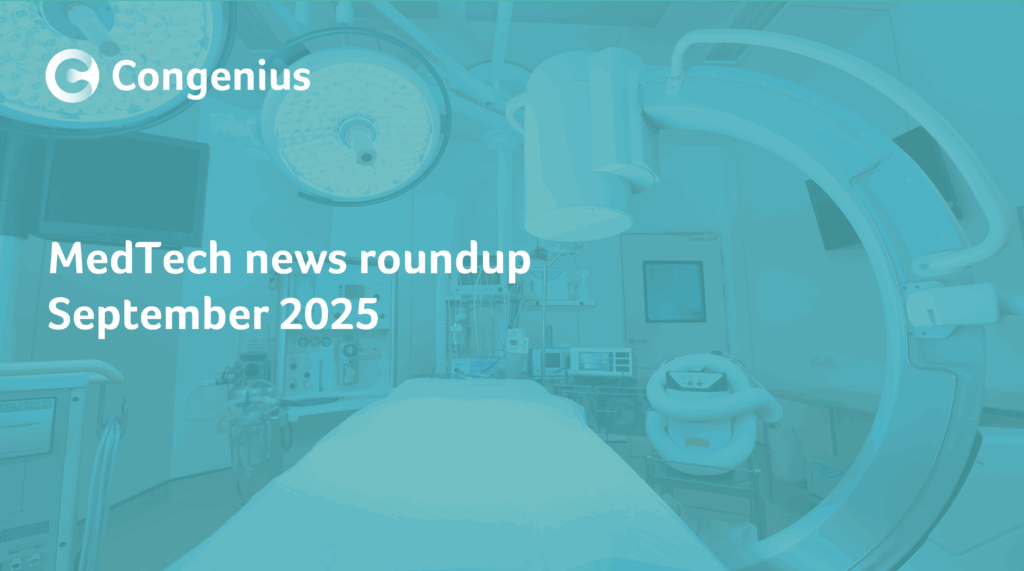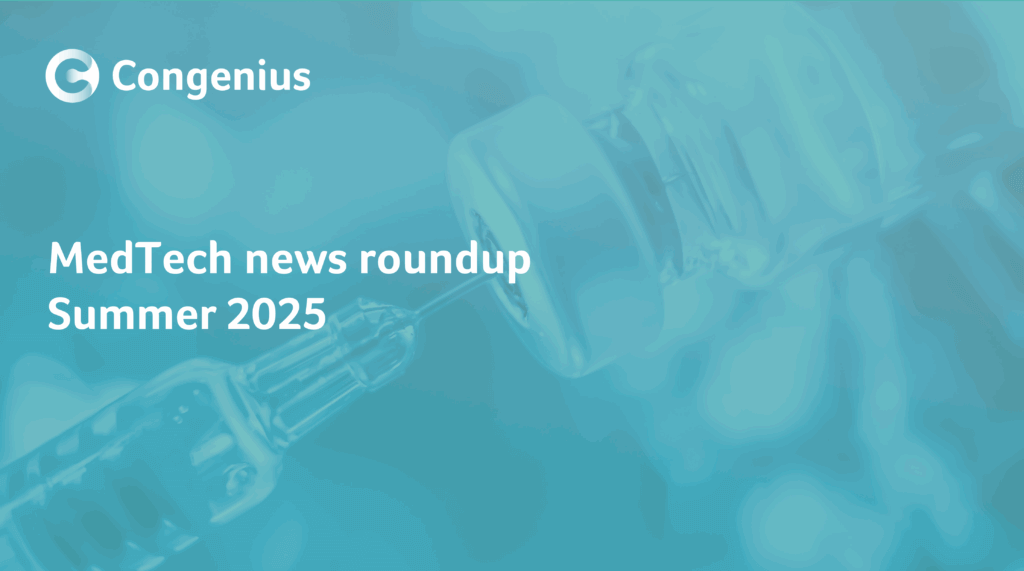Our November 2023 MedTech news roundup covers guiding principles on PCCPs, information from Swissmedic on vigilance reports for medical devices, an update from the EU Commission on UDIs for contact lenses, and guidance from the FDA regarding computational modelling & simulation in medical device submissions, and its enforcement policy for certain supplements for approved PMA or HDE submissions respectively.
The roundup also includes a new report from MITRE on cybersecurity for legacy medical devices, the latest information on the FDA´s Artificial Intelligence Program, as well as news from Health Canada regarding annual MDEL review for 2024 and REP implementation for medical devices.
US, Canada, and UK team up to identify guiding principles for PCCPs
The FDA, Health Canada, and the UK’s MHRA have jointly identified 5 guiding principles for the use of Predetermined Change Control Plans (PCCPs). The regulatory agencies have collaboratively published “Predetermined Change Control Plans for Machine Learning-Enabled Medical Devices: Guiding Principles” to help ensure alignment between their various jurisdictions on PCCPs and products which utilise them.
PCCPs provide a new method for managing rapid product changes often seen with Software and Artificial Intelligence products. These recently published guiding principles lay the foundation for PCCPs for Machine Learning Enabled Medical Devices and encourage international harmonization.
According to the guiding principles document, the foundational characteristics of PCCPs relate to being focused and bounded, risk-based, evidence-based, and transparent, as well as produced from a total product lifecycle perspective.
Find out more about the principles here.
Swissmedic shares new information on vigilance reports for medical devices
Swissmedic has revised its information on submitting vigilance reports (which covers incidents, trend reports and field safety correction action reports) for products according to the Medical Devices Ordinance (MedDO) and the Ordinance on In Vitro Diagnostic Medical Devices (IvDO).
Read more about the updates here.
EU Commission updates MDR regarding UDIs for contact lenses
The EU Commission has added sections to the Regulation (EU) 2017/745 in Part C of Annex VI regarding contact lenses and standard contact lenses. It is now stated that a UDI-DI shall be assigned to standard and made to order contact lenses that have the same combination of contact lens design parameters, including at least base curve and diameter (“Master UDI-DI”).
This Commission Delegated Regulation shall apply from 9 November 2025, however manufacturers may assign a Master UDI-DI in accordance with the MDR as amended by this Regulation before this date.
FDA releases final guidance on Assessing the Credibility of Computational Modelling & Simulation in medical device submissions
The FDA has released final guidance providing its recommendations on a risk-informed framework for credibility assessment of computational modelling and simulation (CM&S) used in medical device regulatory submissions. The guidance applies to physics-based, mechanistic, or other first principles-based models.

On 11 January next year, the FDA will be hosting a webinar for industry to discuss the final guidance document, covering how manufacturers can use the guidance to demonstrate that computational models used to support regulatory submissions are credible, and providing recommendations for using the FDA-recognised standard: “American Society of Mechanical Engineers (ASME) V&V 40 Assessing Credibility of Computational Modelling through Verification and Validation: Application to Medical Devices”, to show CM&S credibility. There´ll also be an opportunity for questions regarding the final guidance.
You can access the guidance here and find out more about the January webinar here.
FDA & MITRE publish report on cybersecurity for legacy medical devices
On 15 November, the FDA announced MITRE´s development of the “Next Steps Toward Managing Legacy Medical Device Cybersecurity Risks” report.
As legacy medical devices cannot be reasonably protected against current cybersecurity threats, these devices can pose significant risks to the health care sector. Whilst legacy devices were put on the market legally, and may therefore still be broadly used, cybersecurity controls that may have been effective at their point of purchase may no longer be adequate.

A complex issue to address, this report from the FDA and MITRE outlines practical approaches and recommendations that build on previous work and seeks to further drive sector-wide legacy device cyber risk management efforts.
You can read more about the report here.
FDA Artificial Intelligence Program: Research on AI/ML-Based medical devices
The FDA´s Artificial Intelligence (AI) Program conducts regulatory science research to ensure patient access to safe and effective medical devices using AI/ML. One of 20 research programs in CDRH’s Office of Science and Engineering Laboratories (OSEL), the Artificial Intelligence Program specifically focuses on regulatory science and research in the following areas:
- Data augmentation and synthetic data to enhance algorithmic training and testing and address the limitations of small and fragmented patient datasets for the training and testing of medical AI models
- Methods to measure and quantify algorithmic bias, reduce performance difference among subpopulations, and ensure generalizability
- Study designs and analysis methods for AI/ML-based computer-aided triage (CADt)
- New evaluation frameworks for continual learning and multi-class systems
- Training for robustness and metrics for assessment of machine learning algorithms
- Assessment techniques for evaluating the reliability of adaptive AI/ML algorithms to support non-clinical test method development
- Assessment approaches to estimate and report the robustness of AI/ML to variation in data acquisition factors
You can find out more about the research program here.
FDA shares enforcement policy for certain supplements for approved PMA or HDE submissions
The FDA has issued final guidance to provide clarification on its policies and regulatory review expectations for certain limited modifications affecting the safety and effectiveness of a device required to have an approved Premarket Approval (PMA), or the safety and probable benefit of a device required to have an approved Humanitarian Device Exemption (HDE) at the conclusion of the COVID-19 public health emergency.
The aim of the guidance is to assist stakeholders with the transition from COVID-19 operations and processes to a normal state.
Access the final guidance here.
Health Canada advises on annual licence review for 2024

Health Canada has shared information regarding what holders of a medical device establishment licence (MDEL) need to know about annual licence review for next year.
According to section 46.1 of the Medical Devices Regulations, to continue doing business, holders of an active MDEL must apply to have their licence reviewed every year before 1 April.
The annual licence review (ALR) ensures that MDEL holders are complying with the regulatory requirements and keeping their licence information up-to-date with Health Canada.
For more information regarding ALR application packages, MDEL cancellations, fees, and timelines, see here.
Health Canada issues revised notice on REP implementation for medical devices
Health Canada will continue to implement the regulatory enrolment process (REP) and use of the Common Electronic Submissions Gateway (CESG) for medical device regulatory activities. The decision was based on the positive results of a pilot project with around 40 companies which began in November 2019 and will end in June next year. All medical device companies are now invited to use this process beginning in July 2024.
The REP will be used to collect information from manufacturers on the company, dossiers, devices, regulatory activities, and transactions. It consists of a set of web-based templates that generate REP Extensible Markup Language (XML) files upon completion.
For more information about how and when to use the REP, see here.
That concludes our November 2023 MedTech news roundup, our last roundup of this year. Check back in January for more medical device news and updates.
Found this useful? To receive our MedTech updates direct to your inbox, you can subscribe to our monthly Knowledge update.






